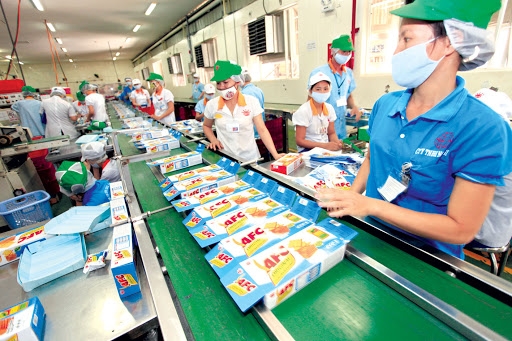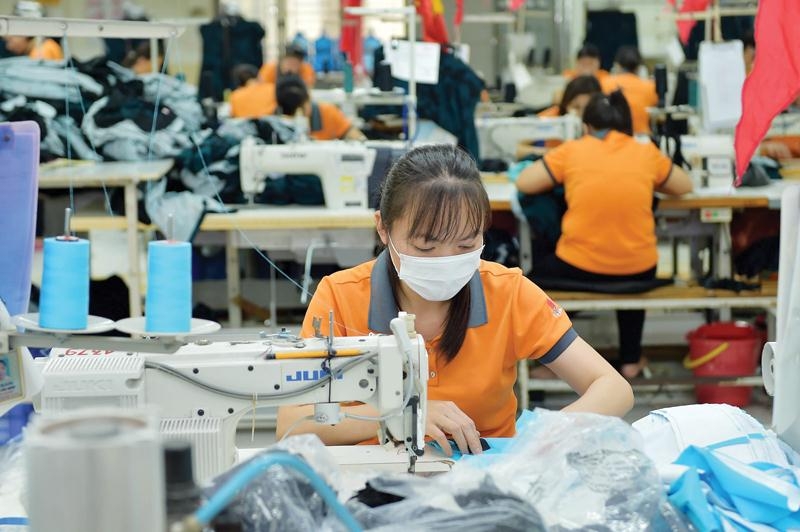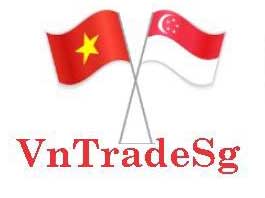With the novel coronavirus pandemic and trade tensions driving the shift of production lines from China to Southeast Asia, Vietnam, in particular, seems to have emerged as an attractive destination for investors and manufacturers alike.
Jones Lang LaSalle (JLL) Vietnam said in a recent statement that multinational manufacturers have been setting up operations in Vietnam for a number of years and this trend is poised to strengthened.
“This movement has accelerated over the past 12-24 months, with companies looking to diversify their operations and supply chains due to tariffs on goods exported from China to the United States. More companies are expected to follow suit, as the cost of production rises,” said JLL Vietnam.
Currently, many large corporations and companies have to consider plans to relocate their production sites when closed in China. Since 2019, many large units have planned to move production, in order to reduce the pressure on new tariff barriers on goods exported from China to the US and to find alternative markets in case prices rise.
Specifically, multinational companies such as Samsung, LG and many Japanese manufacturers have been moving factories from China to Vietnam, or have established new production facilities in Vietnam rather than in China. Companies like Foxconn and other Apple suppliers have said that they have been intending to set up production base in Vietnam for many years.
Nintendo, a video game company, has transferred a part of its Switch Lite game console production to Vietnam. Komatsu, a manufacturer of motor vehicles and construction machinery, manufactures components at its factories and partners in China. But because of the COVID-19 epidemic, Komatsu is shifting its production line of components used for motor vehicle frames and wiring sets to Japan and to Vietnam, reported by Investment Bridge.
 |
| In a manufacturing firm (Photo: VietQ) |
Before the COVID-19 pandemic, VinaCapital was one of the first units to predict that a trade war would occur and spur the movement of manufacturing facilities from China to Vietnam. Now, the hedge fund expects the outbreak of the COVID-19 epidemic to push companies to reposition production from China, in part because the trade war will heat up again after an emergency.
VinaCapital also recognized that this pandemic has two positive implications for Vietnam: Firstly, wage inflation tends to increase after the pandemic subsides, which will encourage manufacturing companies to relocate factories from China to Vietnam. Second, investment returns tend to fall sharply in the decade after the pandemic (unlike after the war), which, along with the so-called Japanization of the US economy, will ensure a wave of collapse in stock markets, according to Investment Bridge.
Data from the U.S. Census Bureau revealed a 35.6% surge in goods imported from Vietnam last year, compared with a 16.2% contraction in goods imported from China.
“Data for this year will be distorted by the effects of the coronavirus on global supply chains, but the trend of manufacturing moving from China to South East Asia will continue,” according to Stuart Ross, head of industrial for South East Asia at JLL.
Stephen Wyatt, Country Head at JLL Vietnam, noted that Vietnam remains a promising market, with a growing trend during the past few years of manufacturing companies looking to set up operations in the country.
“Industrial park developers remain confident that demand for land will continue to grow and, therefore, land prices are expected to increase, in line with the long-term potential of Vietnam’s industrial segment,” Wyatt said.
Companies looking to diversify their manufacturing portfolios outside China are attracted to Vietnam, thanks to its proximity to China, free trade agreements and the Government’s plans to develop Vietnam into a manufacturing hub for Southeast Asia, according to JLL’s latest market report.
 |
| (Photo: Investment News) |
Besides this comment, Mr. Stephen Wyatt, General Director of JLL Vietnam also said: “Vietnam has been a promising destination since the wave of factory relocation from China started. Despite the COVID pandemic -19 are causing certain difficulties for decisions and relocation activities, but many investors are still confident to raise land prices in the first quarter of 2020 because this is a long-term investment trend “.
The report by JLL noted that the average price of land in northern Vietnam reached US$99 per square meter per lease term, up 6.5% year-on-year in the first quarter of 2020. Meanwhile, the figure for the southern region was US$101, a year-on-year increase of 12.2%, compared with the fourth quarter of 2019. In addition, ready-built factories recorded an average price of US$3.5-5 per square meter per month in both regions.
In light of the escalating Covid-19 crisis, JLL Vietnam predicted a delay in the decision-making process for ongoing lease negotiations and new requirements. However, the firm believed the key fundamentals of the market remain strong and will recover, after the epidemic is under control.
“The disruption in the global supply chain caused by the virus outbreak is encouraging businesses to diversify their manufacturing portfolios geographically, instead of being over reliant on one market,” said the firm.
However, “not all manufacturing can be easily outsourced to Vietnam. Manufacturing wages in China are now more than three times those in Vietnam, but skilled labor in China is also higher,” said Wyatt. He noted that the sheer scale of China cannot be replicated, as there are more migrant industrial workers in China than people in Vietnam. Furthermore, a large percentage of China’s manufacturing is meant to serve their domestic market.
JLL predicted that many businesses are likely to rethink their supply chains, in the long term, to ensure continuity of their operations and to reduce risks from future shocks. Coupled with initiatives to improve the sustainability performance and limit the environmental impact of wider operations, retailers may opt to produce and house more stock locally, according to Vietnamnet.
By Candy Lee

















